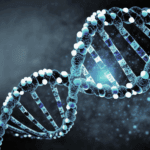Emma Willis, a well-known television personality in the UK, recently shared a revelation that caught many by surprise. For nearly half a century, she carried on with life, completely unaware that her heart had a secret-an undetected hole. Only after a series of medical investigations did she discover the truth, leading to a minimally invasive procedure to fix the issue at London’s Royal Brompton Hospital.
Emma’s journey, which she candidly chronicled on social media, serves as a reminder that sometimes, what we don’t know about our health can be the most surprising of all. Her gratitude for the medical staff and her husband, Matt Willis, who stayed by her side throughout, was palpable. She marveled at the marvels of modern healthcare and the dedicated professionals who make recovery stories like hers possible.
But Emma’s experience is more than a personal tale; it’s a wake-up call. Many heart conditions can lurk beneath the surface, masked by everyday aches or dismissed as minor annoyances. So, what are the subtle signals that your heart might be trying to send you?
The Heart’s Whisper: Six Signals You Shouldn’t Ignore
1. Unusual Chest Sensations
A dull ache in the chest isn’t always just a sign of indigestion or a lack of fitness. Sometimes, it’s your heart’s way of asking for help. This type of discomfort, often felt in the center of the chest and typically triggered by physical activity, can be an early indicator of reduced blood flow to the heart muscle-a situation that shouldn’t be brushed aside. The sensation usually fades with rest, but if it keeps returning, it’s worth discussing with a medical professional.
Read more: This Common Condiment Could Raise Your Risk of Stomach Cancer by 40%, Study Warns
2. Shortness of Breath
Feeling winded after climbing stairs or during a brisk walk might seem normal, especially if you chalk it up to being out of shape or under the weather. However, persistent breathlessness-especially if it worsens during activity-can point to underlying heart concerns. Sometimes, the problem is with the heart’s pumping ability; other times, it’s due to irregular rhythms that disrupt the usual flow of blood. In some cases, you might even notice breathlessness while at rest, only for it to disappear the next day.
3. Aching or Tingling in the Left Arm
It’s not just a trope from television dramas-pain radiating into the left arm is a classic sign that the heart might be under stress. This occurs because the nerves supplying the heart and the arm are closely connected. If you feel discomfort that travels from your chest to your arm, don’t ignore it.
4. Fluttering or Pounding in Your Chest
That odd sensation of your heart skipping a beat or racing unexpectedly is often blamed on nerves or stress. While occasional palpitations are usually harmless, frequent or persistent episodes could signal an underlying rhythm issue. Sometimes, these palpitations are the heart’s way of telling you it’s struggling to keep up.
5. Overwhelming Tiredness
Everyone feels tired from time to time, but if fatigue becomes a constant companion-especially if it’s paired with other symptoms-it might be time to consider your heart’s health. Certain heart rhythm disturbances and reduced heart function can sap your energy, leaving you feeling drained even after a good night’s sleep.
6. Dizzy Moments
Most people have experienced a brief dizzy spell after standing up too quickly, but frequent or severe dizziness that makes you reach for support could be a red flag. These episodes might be caused by the heart beating too slowly or too rapidly, disrupting the steady flow of blood to the brain.
Read more: How To Kill The Bacteria In Your Gut That Causes Bloating And Heartburn
Emma’s Journey: A Closer Look
Emma Willis’s story is a testament to the unpredictability of health. For 48 years, she lived without any inkling of her heart’s hidden flaw. Only after a series of tests did she learn the truth, prompting her to undergo a procedure known as keyhole heart surgery. This minimally invasive approach, performed through tiny incisions, has become a standard at leading cardiac centers like the Royal Brompton Hospital.
Her gratitude extended to the entire medical team, from the specialists who detected the issue to the nurses who provided comfort and reassurance. Emma’s husband, musician Matt Willis, was a constant presence throughout her recovery.
Reflecting on her experience, Emma expressed amazement at the hidden workings of the body and the advances in medical science that allow such conditions to be discovered and treated-even after decades of going unnoticed.
When to Seek Help: Navigating the Next Steps
If you notice any of the subtle signs described above, what should you do? The answer depends on the severity and persistence of your symptoms:
- If you experience severe chest discomfort, intense breathlessness, or a dizzy spell that leaves you unable to stand, seek immediate medical attention.
- For milder, recurring symptoms, a visit to your family doctor is a sensible first step. They can check your pulse, measure your blood pressure, and listen to your heart and lungs. Many clinics also offer tests that record your heart’s electrical activity, helping to uncover hidden issues.
The Wonders of Modern Medicine
Emma’s experience highlights an important truth: medical advances now allow doctors to detect and treat conditions that once went unnoticed. Keyhole heart surgery, for example, involves only small incisions and offers a quicker recovery compared to traditional open procedures. The expertise of specialized teams at hospitals like the Royal Brompton has made these treatments safer and more accessible.
The Body’s Hidden Messages
It’s easy to assume that major health concerns always announce themselves with dramatic symptoms. But as Emma’s story shows, sometimes the body’s signals are subtle, almost whisper-like. Paying attention to changes-no matter how minor they seem-can make all the difference.
Emma’s openness about her journey has resonated with many. Her story is not just about a medical procedure; it’s about the importance of listening to your body, seeking help when something feels off, and appreciating the people and professionals who support us along the way.
Read more: Man Leaves The Hospital With Totally Artificial Heart In World-First
The Takeaway: Listen Closely, Act Promptly
The heart is a remarkable organ, quietly working behind the scenes. But when it sends out signals-whether it’s a flutter, a twinge, or a wave of tiredness-it’s wise to pay attention. Emma Willis’s experience is a reminder that even the healthiest-looking among us can have hidden health surprises.
If you notice any of the signs described above, don’t dismiss them. A timely check-up could make all the difference, turning a hidden issue into a manageable one-and giving you plenty of reasons to be grateful for the marvels of modern medicine.
Frequently Overlooked Signs: A Recap
| Symptom | What It Might Mean | When to Seek Help |
|---|---|---|
| Chest discomfort | Reduced blood flow to the heart | Immediately if severe |
| Shortness of breath | Heart function or rhythm issue | If persistent or worsening |
| Left arm pain | Nerve-related heart signal | If sudden or unexplained |
| Palpitations | Possible rhythm disturbance | If frequent or persistent |
| Extreme fatigue | Heart rhythm or function problem | If ongoing and unexplained |
| Dizzy spells | Heart rhythm too slow/fast | If severe or frequent |
Final Thoughts
Emma Willis’s story is a gentle nudge to stay curious about your own health. While not every ache or flutter is a cause for alarm, being aware of your body’s signals-and acting on them-can lead to early detection and better outcomes.
So, the next time your body tries to tell you something, don’t brush it off. Sometimes, the most important messages are the ones we almost miss.










